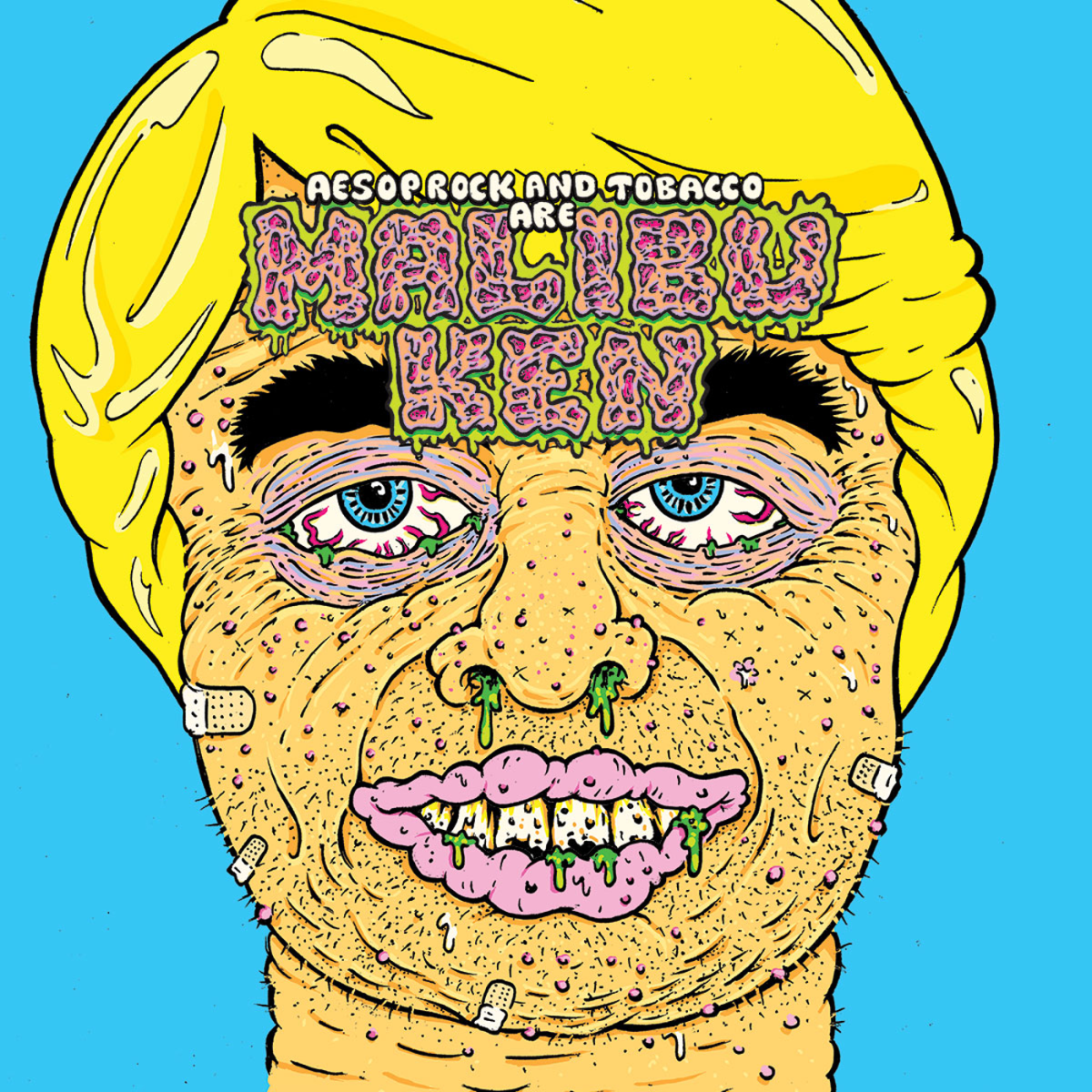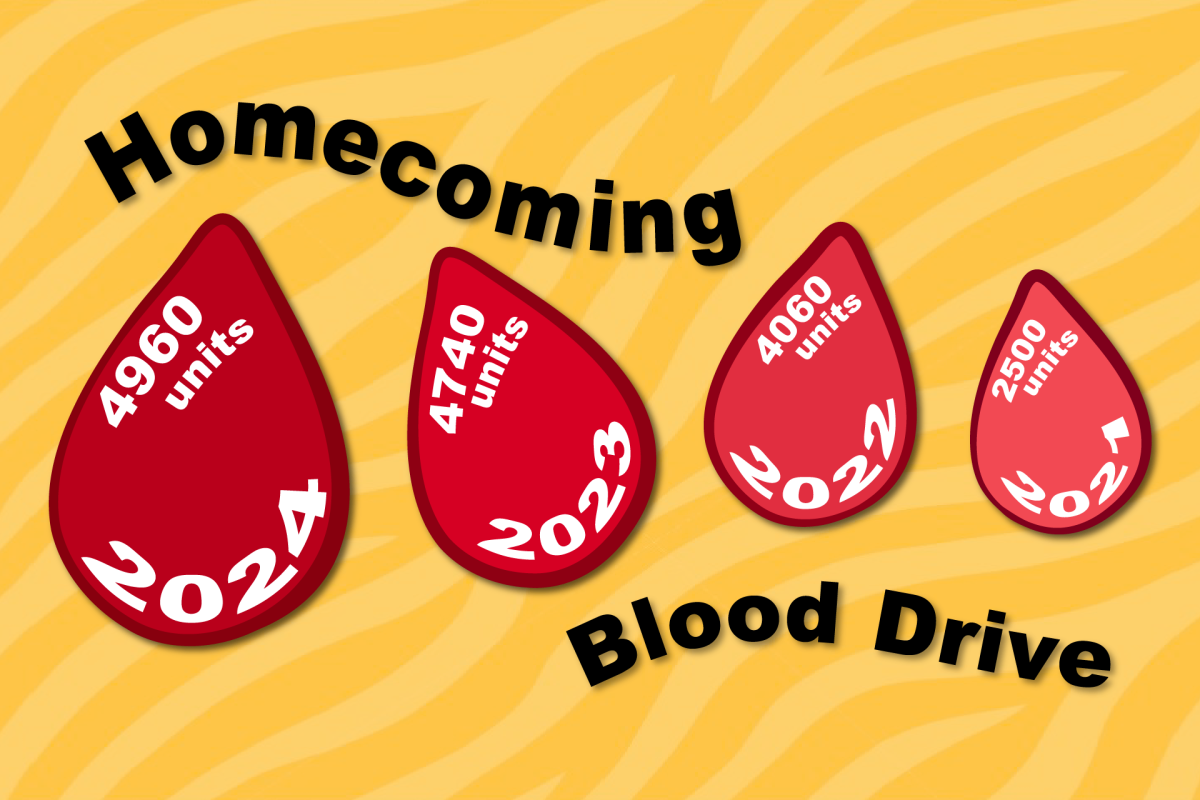Few rappers have displayed the same mastery of the English language as Aesop Rock, the Portland-based underground MC who has been cited as wielding the largest vocabulary in hip-hop. Tobacco is the stage name for Tom Fec, frontman of experimental electronic outfit Black Moth Super Rainbow and the other half of the duo. As Malibu Ken, Tobacco lends his dark synthesizers to Aesop Rock’s infamously verbose rapping. Their debut album is an exciting collection of truly bizarre electro-rap gems.
The duo first met in 2007, when Aesop Rock and BMSR toured together. Shortly after, the rapper and producer would first collaborate on “Dirt,” a track from the Tobacco’s 2008 debut solo album. On “Dirt,” Tobacco’s jagged production bubbles under Aesop’s rapping, with bursts of synth frequently overflowing into the song’s foreground. The song is glitchy and chaotic and that’s without factoring in the unwaveringly wordy verses that Aesop contributes. A fantastic cut? Absolutely, but as a prototypical version of “Malibu Ken,” “Dirt” does not fully anticipate the sounds that Aesop Rock and Tobacco offer on their full-length outing.
“Malibu Ken” possesses a surprising sterility. For both artists, the album feels like a very stripped-back effort. Tobacco’s production sounds more streamlined and less expansive than it has previously. The beats are overwhelmingly synth-driven, and at a cursory listen sounds like an extension of the similar aesthetic Aesop Rock established on 2016’s self-produced “The Impossible Kid.” While “The Impossible Kid” was characterized by authoritative, percussive instrumentals, the beats on “Malibu Ken” opt for a slower, more obtuse sound. Instead of technical flourishes and noisy details, Tobacco’s instrumentals have a strong minimalist bent, offering a rigid foundation for Aesop’s rapping that sounds occasionally awkward but never entirely unpleasant.
The song “Sword Box” is an excellent track that features some of the album’s more experimental production. The instrumental is frugal, built around sparse percussion and basslines underneath increasing layers of shiny synthesizer. The end of the song is where Tobacco really gets creative, modulating Aesop’s voice and swelling the instrumental to distortion, closing out with a jarring pseudo-breakdown. For his part, Aesop offers a slow, methodical flow that sits perfectly atop the instrumental, riding his partner’s alien soundscape with a dogged tenacity.
In fact, much of Aesop Rock’s rapping on “Malibu Ken” seems to be generally more direct than it has on previous releases. His verses are more linear and focused, dealing with more concrete topics. The opening track “Corn Maze” sees the rapper revisiting familiar lyrical ground, discussing his preference for privacy and the impenetrability of his lyrics, and by extension, his lifestyle.
“Tuesday” follows “Corn Maze” as a quirky story that doubles down on the consistently eccentric self-image Aesop’s music presents. “There’s something you should probably know before we go too far/ My neighbor found a mushroom growing inside of my car,” the song opens. The rapper continues to describe the episode, finding a tongue-in-cheek enjoyment in the whole thing. At one point he even points out the irony that he struggles to keep even cacti alive, wrapping up the quip with the darkly humorous line “It’s weird knowing life thrives more when you exit.”
Even at his most concrete, Aesop Rock is still far more esoteric than many rappers at their most abstract. Album standout “Acid King” details the 1984 murder of Gary Lauwers by Ricky Kasso, specifically discussing the occult and psychedelic aspects of it. “It’s starting to feel like a nice night/ Hold close to the highs and the white light/ Hold close to the good you are drawn to/ These woods were grown to disarm you,” he repeats at the end of the song. “Acid King” is a dark and unnerving track from a lyrical standpoint, further enhanced by the nervous, spacey instrumental Tobacco crafts. Most importantly, it shows the best that the duo can offer. “Malibu Ken” is a meeting of two artists that revel in their status as outsiders. Both artists jump at the opportunity to create a compelling album that is just as unbalanced, sardonic and challenging as their solo work.
_Edited by Joe Cross | [email protected]_








